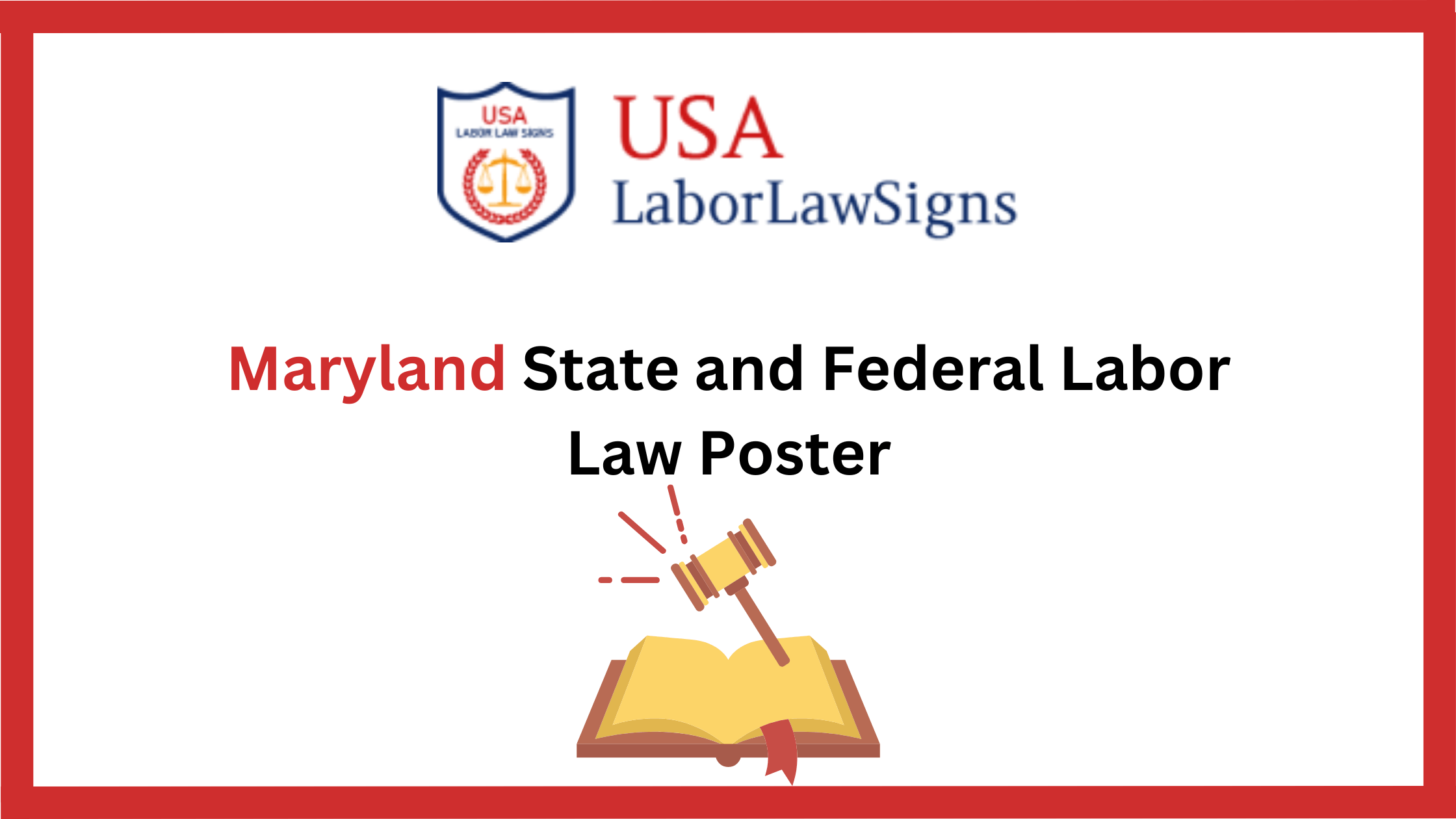Common Violations of Maryland State and Federal Labor Laws

Ensuring compliance with labor laws is crucial for Maryland employers to protect their employees’ rights and well-being. Failure to adhere to state and federal labor laws can lead to legal consequences, financial penalties, and damage to a company’s reputation. This article highlights five common violations of Maryland labor laws that employers should know. Businesses can maintain a fair and lawful work environment by understanding these violations and taking proactive steps to prevent them.
Common Violations of Maryland Labor Laws
Minimum Wage Violations
One of Maryland’s most prevalent labor law violations is related to minimum wage requirements. The state’s minimum wage is subject to periodic increases, and employers must ensure their employees receive the appropriate compensation. Violations may occur when employers fail to pay the mandated minimum wage, pay less than the required overtime rate, misclassify employees as exempt from minimum wage laws, or withhold tips unlawfully.
Unpaid Overtime
Unpaid overtime violations occur when employers fail to compensate eligible employees for working beyond the 40-hour workweek. In Maryland, non-exempt employees must be paid one and a half times their regular pay rate for each hour worked over 40 hours a week. Violations can arise when employers misclassify employees as exempt from overtime requirements or implement practices discouraging employees from claiming overtime pay.
Failure to Provide Meal and Rest Breaks
Maryland law does not mandate specific meal and rest break requirements for employees. However, employers must adhere to federal regulations if they fall under the purview of the Fair Labor Standards Act (FLSA). Violations occur when employers deny employees entitled to rest breaks or fail to provide uninterrupted meal breaks for eligible employees.
Improper Classification of Independent Contractors
Misclassifying workers as independent contractors instead of employees is a common violation in Maryland and can result in significant legal consequences. Misclassifying employees allows employers to avoid providing benefits, paying payroll taxes, and complying with various employment laws. To determine proper classification, Maryland uses the “ABC test,” which examines the control exerted by the employer over the worker. Misclassifying employees can lead to penalties, back pay claims, and potential audits from state and federal agencies.
Failure to Provide Proper Wage Statements
Maryland law requires employers to provide accurate and detailed employee wage statements. These statements should include hours worked, wage rates, deductions, and other relevant payroll details. Violations occur when employers fail to provide wage statements or provide incomplete or misleading information on the statements.
Failure to Maintain Accurate Recordkeeping
Maryland employers must maintain accurate records of employees’ hours worked, wages paid, and other employment-related information. Violations occur when employers fail to keep proper records or intentionally falsify records. Accurate recordkeeping is crucial for demonstrating compliance with labor laws and is essential in disputes, audits, or investigations.
Discrimination and Harassment Violations
Maryland law prohibits workplace discrimination and harassment based on protected characteristics such as race, gender, religion, age, disability, etc. Violations occur when employers engage in discriminatory practices during hiring, promotion, or termination decisions or allow a hostile work environment to persist. Employers must have robust anti-discrimination and anti-harassment policies, conduct regular training, and promptly address complaints or concerns.
Failure to Provide Family and Medical Leave
Under the Maryland Healthy Working Families Act (HWFA) and the federal Family and Medical Leave Act (FMLA), eligible employees can take unpaid leave for specific reasons such as the birth of a child, serious health conditions, or caring for a family member. Violations occur when employers deny or interfere with employees’ rights to take family and medical leave or retaliate against employees for exercising their leave rights.
Safety and Health Violations
Maryland employers must provide a safe and healthy work environment for their employees. Violations can include failure to implement proper safety protocols, inadequate training, lack of personal protective equipment, or failure to address hazardous conditions. Employers should comply with Occupational Safety and Health Administration (OSHA) regulations, conduct regular inspections, and take prompt corrective actions to mitigate workplace hazards.
Retaliation against Whistleblowers
Maryland law protects employees who report violations of labor laws or engage in protected activities from retaliation. Violations occur when employers take adverse actions, such as termination, demotion, or harassment, against employees in retaliation for whistleblowing or exercising their legal rights. Employers must establish clear policies against retaliation, educate employees about their rights, and promptly investigate and address any reports of retaliation.
Conclusion
Compliance with Maryland state and federal labor laws is essential for employers to protect employees’ rights and avoid legal and financial repercussions. By understanding and addressing common violations such as minimum wage infractions, unpaid overtime, failure to provide breaks, misclassification of workers, and improper wage statements, businesses in Maryland can create a fair and lawful work environment.
Read Related: Benefits of Using Electronic Indiana State and Federal Labor Law Posters
